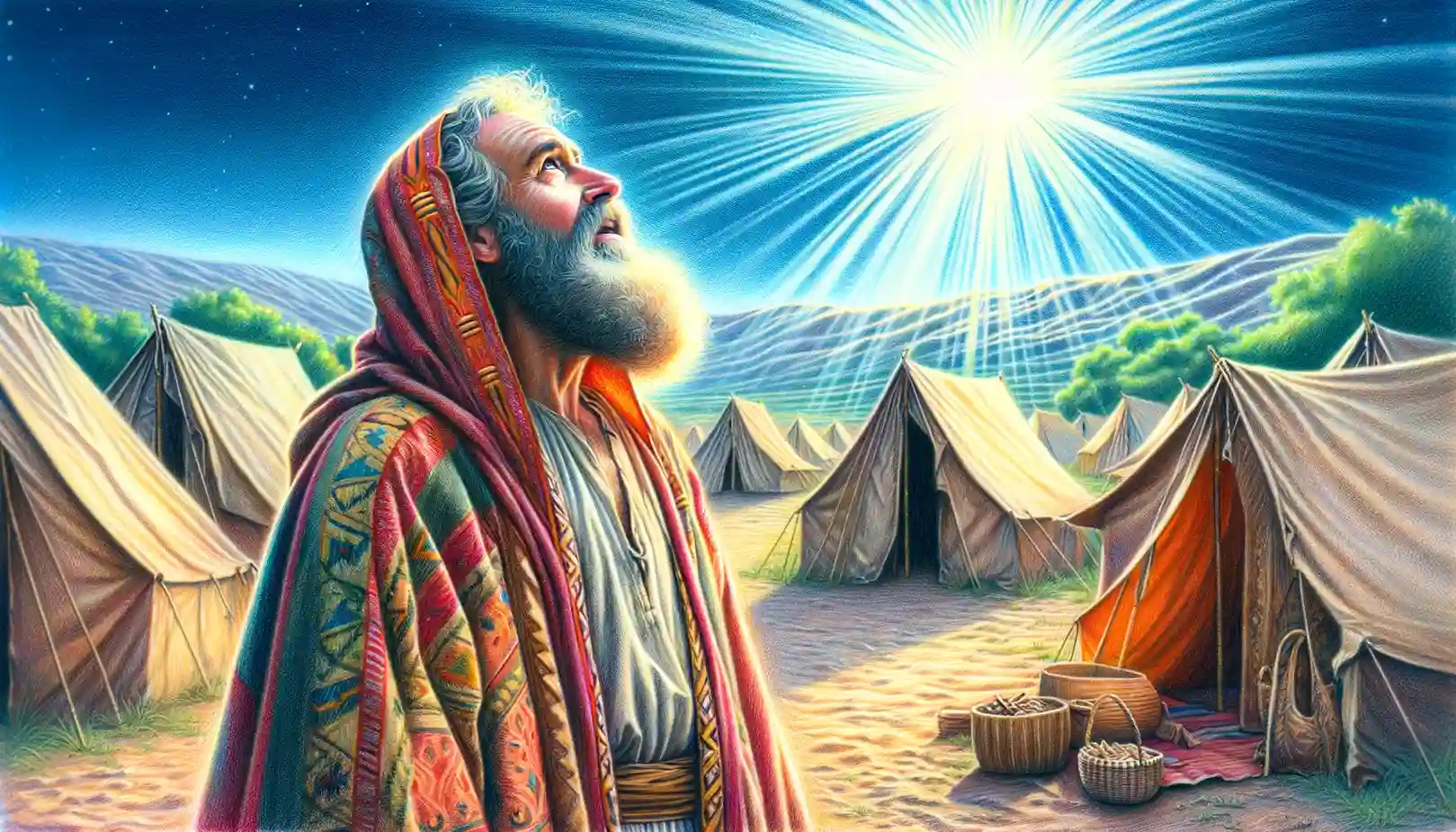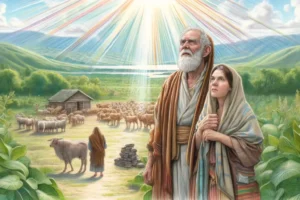
The Journeys of Abraham
The Journeys of Abraham, documented in Genesis chapters 12 through 25, detail the foundational travels of Abraham, originally Abram, as he follows God’s call. These passages mark significant events in the life of Abraham and the formation of the covenant between God and his descendants.
Quick Facts:
- The Call of Abram: God calls Abram to leave his homeland, Haran, promising to make him a great nation, bless him, and make his name great (Genesis 12:1-4).
- Abram’s Promise of Land: Abram travels through Canaan, where God promises the land to his offspring (Genesis 12:7).
- Abram’s Journey to Egypt: Faced with famine, Abram moves to Egypt temporarily, where he encounters Pharaoh and experiences God’s protective interventions (Genesis 12:10-20).
- Abram’s Separation from Lot: Abram and his nephew Lot separate to avoid conflict between their herdsmen. Lot chooses the Jordan plain, and Abram remains in Canaan (Genesis 13:5-18).
- Rescue of Lot and Blessing by Melchizedek: Abram rescues Lot and defeats several kings. He is blessed by Melchizedek, the king of Salem (Genesis 14).
- Abram’s Covenant of the Pieces: God makes a covenant with Abram, promising numerous descendants and the lands from Egypt to the Euphrates River (Genesis 15).
- Birth of Ishmael: Abram, at Sarai’s suggestion, has a son, Ishmael, with Hagar, Sarai’s servant (Genesis 16).
- Change of Abram’s Names and Circumcision Covenant: God changes Abram’s name to Abraham and Sarai’s to Sarah, establishing circumcision as a sign of the covenant (Genesis 17).
- Birth of Isaac: God promises Abraham a son through Sarah. Isaac is born as promised, fulfilling God’s covenant (Genesis 21).
- Test of Abraham’s Faith: Abraham’s faith is supremely tested when God commands him to sacrifice Isaac, a test he passes when God provides a ram as a substitute offering (Genesis 22).
1. Contextual Background
The narratives of Abraham’s journeys from Genesis 12 to 25 form a significant portion of the patriarchal history in the Hebrew Bible. These stories not only trace the physical journeys of Abraham from Ur to Canaan and then through various parts of the Near East but also depict his spiritual journey and development as the progenitor of the Jewish nation.
2. Theological Insights
- Covenant Relationship: Central to the Abraham narratives is the theme of covenant, which is initiated and reiterated by God in various forms. The covenants include land (Genesis 12:1-3, 15:18-21), descendants (Genesis 15:4-5; 17:2-8), and blessing (Genesis 12:2-3). These promises frame God’s plan not just for Abraham but for all humanity, culminating in the idea that through Abraham all families of the earth would be blessed.
- Faith and Righteousness: Abraham’s faith is highlighted as a foundational virtue, particularly in Genesis 15:6, where his belief in God is counted to him as righteousness. This sets a precedent in biblical theology concerning the relationship between faith and divine approval.
- Testing and Obedience: The ultimate test of Abraham’s faith comes in Genesis 22 with the binding of Isaac. This story intensely explores the themes of obedience, sacrifice, and trust in divine providence.
3. Literary Elements
The narrative uses episodic structure, where each journey and event builds upon the previous to develop Abraham’s character and his relationship with God. Literary techniques such as dialogue, divine appearances (theophanies), and altars’ consecrations enhance the spiritual and theological dimensions of the story.
4. Cultural and Societal Impact
Abraham’s journeys and the covenantal promises have profound implications for Jewish, Christian, and Islamic theology, each interpreting these narratives within their doctrinal frameworks. Abraham is seen as a model of faith and obedience, impacting religious culture, ethics, and practices. His willingness to leave his homeland and family at God’s command has served as an archetype for faith-led migration and spiritual quest in various religious traditions.
5. Modern-Day Implications
The story of Abraham continues to resonate in contemporary discussions about faith, migration, and the ethics of obedience to divine command. His journeys encourage a reflection on the meaning of being a stranger and a sojourner, which has relevance in today’s global discussions on immigration and identity. Additionally, Abraham’s example is often cited in interfaith dialogue as a common point of reference for Jews, Christians, and Muslims.
6. Conclusion
The journeys of Abraham encapsulate a narrative rich with theological, ethical, and spiritual lessons. From his initial call to the testing of his faith, Abraham’s story is foundational not only to understanding the origins of Israel but also in shaping the monotheistic worldview. His legacy as a “father of many nations” underscores themes of faith, promise, and divine fidelity that are central to Abrahamic religions.
See also the Gallery of The Journeys of Abraham
Tag:Abraham, Abrahamic religions, Canaan, Covenant, Egypt, Faith, Genesis 12-25, Isaac, Ishmael, Lot, Melchizedek, patriarch



